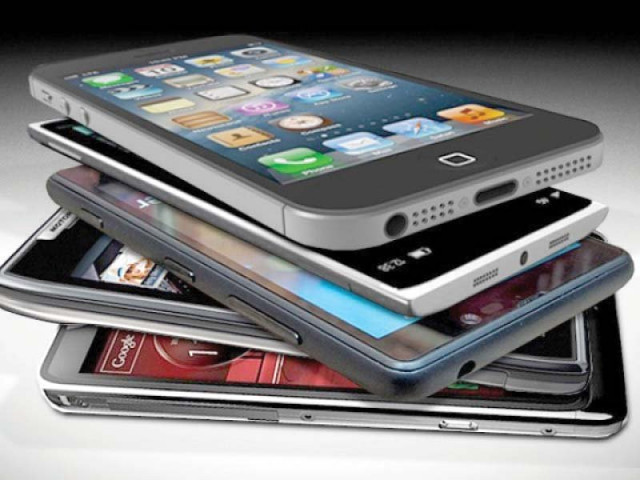High taxes, rupee’s fall bring down cellphone demand
Mobile phone imports dip 7% to $424m in Jul-Jan FY19

There are various kinds of taxes on mobile phones including different duties, sales tax, additional sales tax, advance tax on non-filers of tax returns and IT tax. PHOTO: FILE
In the first seven months of the current fiscal year (Jul-Jan 2018-19), the mobile phone imports decreased 7.11% to $423.8 million compared to imports valuing at $456.3 million in the corresponding period of previous year.
“The number has gone very low; we need a lot more mobile phones,” commented Parvez Iftikhar, former CEO of the Universal Service Fund (USF) and an international ICT consultant. “More and more people should switch to smartphones, which are mainly used to gain internet access, which is a big source of development in any country.”
He was of the view that people having high income changed their mobile phones in a year while those with modest income kept cellphones for two years.
The weakness of the rupee, which has gone down around 32% against the US dollar in the past 13 months, is one of the major factors behind the drop in mobile phone imports. The rupee’s free fall has affected many sectors of Pakistan’s economy.
Following the currency’s depreciation, the prices of mobiles phones have increased, which has restricted demand as people’s purchasing power has already been hit by rising inflation.
Jahangir Khan, who went to buy two mobile phones - one for himself and another for his niece - returned back empty-handed after looking at inflated prices of the devices. “Cellphones have gone beyond my reach; my meagre resources don’t allow purchase of higher-priced phones,” he said.
Earlier, some companies had approached the Pakistan Telecommunication Authority, expressing interest in setting up mobile phone assembly plants in Pakistan. However, according to the ICT expert, such plans may not prove viable for the assemblers as the life span of cellphones is very short and local parts will not be available in the country.
“Assembly is only good where there are chances of value addition, which gradually encourages the use of local parts in production process,” Iftikhar said.
Apart from this, “an unnecessary evil for the telecom industry is high taxes,” he said.
There are various kinds of taxes on mobile phones including different duties, sales tax, additional sales tax, advance tax on non-filers of tax returns and IT tax. In addition to these, provinces have their own taxes.
CJP proposes to restore tax on prepaid mobile cards
“The government should not levy any tax at all if it wants to promote technology,” he suggested. “In my view, the taxes are very high that are impacting demand. Our future depends entirely on IT and telecom; we want the growth of broadband, but it is not possible without scrapping the heavy taxes.”
First half of FY19: Tax collection misses target by Rs175b as economy slows
He considers IT and telecom as a vital industry that helps every sector, whether it is health care, education, e-commerce, e-governance or financial inclusion.
Published in The Express Tribune, February 17th, 2019.
Like Business on Facebook, follow @TribuneBiz on Twitter to stay informed and join in the conversation.



















COMMENTS
Comments are moderated and generally will be posted if they are on-topic and not abusive.
For more information, please see our Comments FAQ